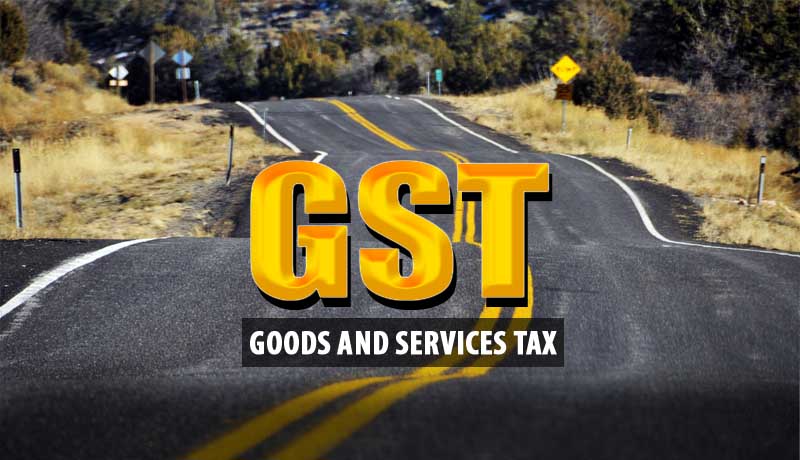Bumpy road ahead for Traders in GST regime

GST
GST
This article tries to highlight procedural aspects for businessmen in new GST regime relating to filing of tax returns. As you must be aware, the seller is liable to pay GST on the sale of goods and services, and the amount payable is to be explained by providing adequate data in returns, to be filed concurrently.
Under current VAT Laws, of most of the states, quarterly returns are to be submitted and in addition, an annual return is as well required in some state laws. While Service Tax laws ask for submission of two half yearly returns and a yearly return (yearly return was recently introduced from FY 2016-17). Let’s understand how this position changes in GST regime.
It is surprising to note that in new GST law, one would require to file not less than 37 returns for a financial year. These comprises of monthly outward supplies return, monthly inward supplies return, monthly summary returns and one annual return. And in case, somebody wishes to surrender his GST registration, he again needs to provide a final return too.
So which are these 37 returns ? Let’s have a look :-
Monthly sales / outward supply return under Section 25 of Model GST Law: By 10th of succeeding month, one is required to file a return specifying all the Sales / Outward supplies made in the previous month. It requires one to report the details of all Invoices and GST number of clients/ customers (registered GST assessees) to whom these supplies were made. The term ‘supplies’ includes both sales of goods and rendering services.
The GST common portal will populate this data to respective client’s (registered taxable person’s) screen for validation. This data shall eventually be used by respective client/ customer to furnish the returns of monthly purchase / inward supplies required to be filed by 15th of succeeding month. One needs to file this return as prescribed by Section 26.
The client / customer may also approach you for correcting any mistakes / deviations made by you in your Sales / Outward supplies return.
The third return is a combination of auto populated data of above two returns plus details of taxes challan paid and input credit availed, and is to be filed by 20th of succeeding month.
How do these three monthly returns change your way of doing business?
Firstly, the new system compels you to close your books on a monthly basis. This is good step theoretically, but practically requires a fully functional back office to ensure accurate data is ready with-in respective deadlines. The process is to be followed in piecemeal, three times a month; sales, purchase and reconciliation. Any input claimed without receipt of goods is prone to prosecution. Act also provides for imprisonment provisions in case of severe defaults.
This is a minimum requirement assuming that you operate in a single state which would have multiplier effect if you are operating into more. The number can reach up-to 1147 returns, if you have presence in all 31 states. These still excludes the revisions, in case any unfortunate mistake done by you or your customer/ supplier. So, planning time for these returns and revisions is very important.
What if you miss to file any single return? The penalties are Rupees one hundred per day and your GST compliance rating score shared in public domain goes for a toss. On the top of it, if you miss to file your return and pay tax, your customers cannot avail tax credit on goods sold by you.
What if you mistakenly punch inaccurate data in returns so filed? Let’s understand this with one example. Suppose while punching the sales data your vendor punches the Invoice of Rs 10 lacs as Rs 1 lacs only, in such case, please be aware as you need to pay balance tax until the seller corrects the same. So, you may have to pay a fortune for such typo errors. On the top of it, one need to pay interest on disputed amount, if there are delays in depositing it. In short, you may need to maintain sufficient working capital just to deal with such instances alone, given most of Business to Business (B2B) transactions operates on very thin margins. If you miss to get it rectified by September following the end of the financial year, please be prepared to forget this excess paid money. Please also keep praying for your vendor that he always remain in good health and is able to file his GST return in timely manner thrice a month.
Coming now to the annual return, this needs to be filed by 31st December following the end of financial year. This return must be in concurrence of your annual financial results and summation of your 12 monthly returns filed.
One needs to budget working capital too, as once you generate Sales Invoice the GST becomes payable. However, in case of availing inputs, actual receipt of goods / services is a pre condition. If you haven’t paid the tax, your return would be considered as invalid. You are not allowed to furnish return for a tax period if valid return for any previous period hasn’t been furnished.
There is one more return, which we haven’t mentioned yet under Section 27A called as First Return or Welcome Return. You need to file this first return, once you are granted GST registration.
However, Act does prescribe a composition scheme, wherein by paying certain %age (approx 1-2%) of your turnover as tax, you can save yourself from this suffering, provided your annual turnover is less than Rs 50 lacs and you do not have any interstate supplies of goods or services.
The system does provide for editing / correction of returns, but is it practical in a country like ours? With the limited and inadequate means we have, in terms of power, IT equipment, data networks and the prevalent computer literacy rate, it is very difficult to manage this world’s largest matching system.
Changing monthly returns to quarterly returns, keeping lesser rate of tax under composition scheme, increasing threshold in composition scheme, diluting imprisonment provisions for new law, increasing dispute correction time window can be the enabling provisions. Present harsh provisions may lead to widespread non-compliance which is not in the interest of our nation.

Saurabh Gupta is a practicing Chartered Accountant having qualified post qualification course in “Master in Business Finance” from ICAI. He has over 14 years of experience in finance and accounts domain. He specializes in strategic planning and implementation, financial control, fund raising, transfer pricing audits, tax planning & statutory compliances. He is having versatile corporate experience in retail sector and has worked in financial controller role with DLF Brands prior to joining practice.


